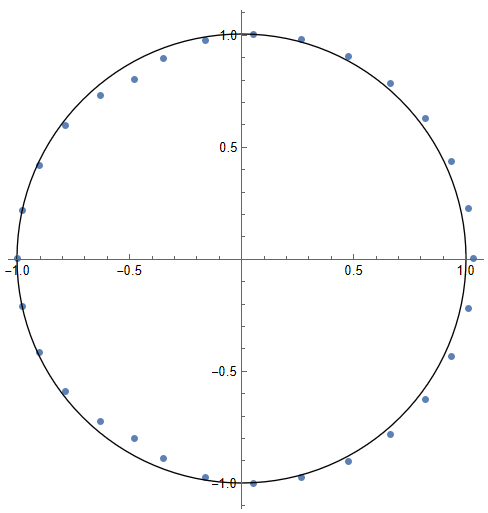The question is stated in the title of this post.
It is easy to see that, if $z$ is a multiple root of $p_n(z):=1+z+z^2-z^n$, then $(n-2)z^2+(n-1)z+n=0$, so that we can successively express $z^2,\dots,z^n$ as affine functions of $z$, but the expressions seem hard to analyze.
Trying to use the discriminant of $p_n$ and letting $$d_n:=(-1)^{n (n - 1)/2} (-1)^{n - 1}\,\text{discriminant}(p_n),$$ we get $$(d_1,\dots,d_{15})=(-4, 1, 44, 279, 2300, 57425, 841436, 14201719, 442321436, 10095992037, 254419300556, 9827983382723, 304507125159644, 10182574354147897, 472932455198902268).$$
There is nothing in the OEIS on $$4, 1, 44, 279, 2300, 57425, 841436, 14201719$$ or on $$1, 44, 279, 2300, 57425, 841436, 14201719.$$
Shown here are the roots of $p_{30}$ and the unit circle in $\mathbb C$:

